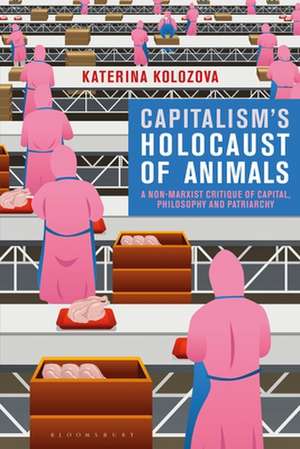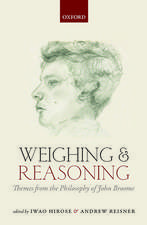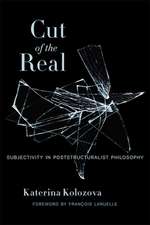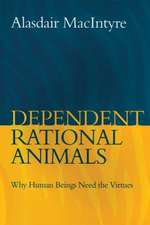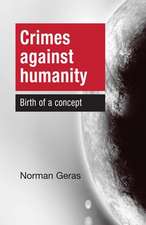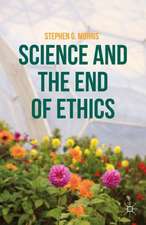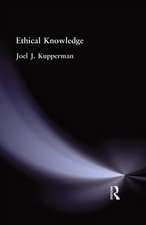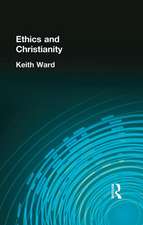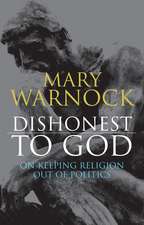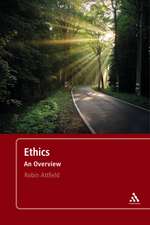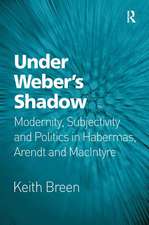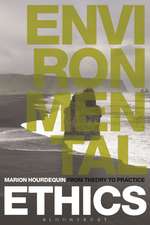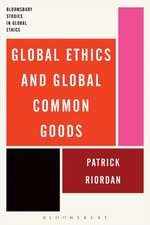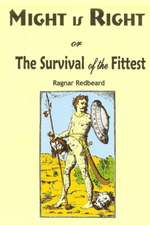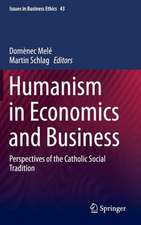Capitalism’s Holocaust of Animals: A Non-Marxist Critique of Capital, Philosophy and Patriarchy
Autor Katerina Kolozovaen Limba Engleză Paperback – 8 sep 2021
| Toate formatele și edițiile | Preț | Express |
|---|---|---|
| Paperback (1) | 215.88 lei 6-8 săpt. | |
| Bloomsbury Publishing – 8 sep 2021 | 215.88 lei 6-8 săpt. | |
| Hardback (1) | 656.47 lei 6-8 săpt. | |
| Bloomsbury Publishing – 16 oct 2019 | 656.47 lei 6-8 săpt. |
Preț: 215.88 lei
Nou
Puncte Express: 324
Preț estimativ în valută:
41.32€ • 44.90$ • 34.73£
41.32€ • 44.90$ • 34.73£
Carte tipărită la comandă
Livrare economică 21 aprilie-05 mai
Preluare comenzi: 021 569.72.76
Specificații
ISBN-13: 9781350253575
ISBN-10: 135025357X
Pagini: 184
Dimensiuni: 156 x 234 mm
Greutate: 0.26 kg
Editura: Bloomsbury Publishing
Colecția Bloomsbury Academic
Locul publicării:London, United Kingdom
ISBN-10: 135025357X
Pagini: 184
Dimensiuni: 156 x 234 mm
Greutate: 0.26 kg
Editura: Bloomsbury Publishing
Colecția Bloomsbury Academic
Locul publicării:London, United Kingdom
Caracteristici
This book engages with the question of animal ethics from a Marxist and post-Marxist philosophical perspective in a uniquely pro-animal way
Notă biografică
Katerina Kolozova is Director and Professor of Gender Studies and Philosophy at the Institute of Social Sciences and Humanities Research and Professor of Political Philosophy at the University American College Skopje, Republic of Macedonia. She is the author of The Cut of The Real: Subjectivity in Poststructuralist Philosophy (2014).
Cuprins
IntroductionChapter 1: The Physical and the Automaton Introducing the Radical Dyad of the Non-humanChapter 2: Formalism of Materialist ReasonChapter 3: Subjectivity as Inherently Philosophical Entity and the Third Person's PerspectiveChapter 4: Homologies and Asymmetries between the Automata of Capital and PatriarchyChapter 5: New Political Economy is Possible Only under the Condition of Abolishment of the Metaphysics of Animal-for-KillingReferences
Recenzii
We admit that animals are sentient beings and that they have rights, but we always treat them as abstractions. Katerina Kolozova makes us understand that it is philosophy that induces this belief, because philosophy is a denial of animals as it has been a denial of women. Moreover, these denials are conditions of the closing of philosophical systems. Kolozova urges us to transform our conception of philosophy by relating it to new, more generous concepts of woman and animal.
Capitalism's Holocaust of Animals is a beautifully intense, challenging, and insightful bringing to bear of Laruellean non-philosophy, Marxism, feminism, and Lacanian psychoanalysis to the question of animal life under capitalism. Kolozova gives a spirited and utterly compelling defense of the claim that real human emancipation requires animal emancipation.
In this dense and compelling non-philosophical provocation, Kolozova persuasively argues that the complete expenditure of all animality (including humans, and those without language) is a precondition of capitalism and its metaphysics of self-sufficiency. Grounded in a Laruellian re-reading of Marx (that nonetheless strategically aligns itself with critical and anti-masculinist concepts like Haraway's 'cyborg'), this book tackles contemporary/popular accounts of humanism and post-humanism by offering a scathing critique of subjective philosophy and its logic of animal exploitation.
Capitalism's Holocaust of Animals is a beautifully intense, challenging, and insightful bringing to bear of Laruellean non-philosophy, Marxism, feminism, and Lacanian psychoanalysis to the question of animal life under capitalism. Kolozova gives a spirited and utterly compelling defense of the claim that real human emancipation requires animal emancipation.
In this dense and compelling non-philosophical provocation, Kolozova persuasively argues that the complete expenditure of all animality (including humans, and those without language) is a precondition of capitalism and its metaphysics of self-sufficiency. Grounded in a Laruellian re-reading of Marx (that nonetheless strategically aligns itself with critical and anti-masculinist concepts like Haraway's 'cyborg'), this book tackles contemporary/popular accounts of humanism and post-humanism by offering a scathing critique of subjective philosophy and its logic of animal exploitation.
